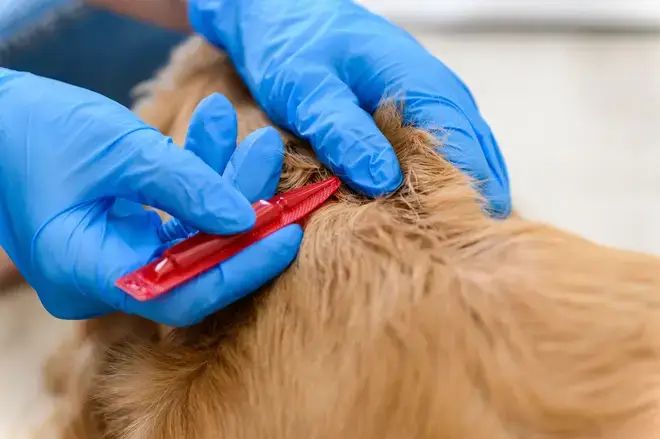The Intellectual Property Office (IPO) and Veterinary Medicine Directorate (VMD) have urged pet owners to exercise caution when buying flea treatment, as a flood of counterfeit products with toxic ingredients poses a threat to their pets.
Pet owners across the UK have reported their furry friends falling seriously ill after being given counterfeit flea treatments.
One such pet owner, Alan Wall from Preston, nearly lost his pet cat Smokey to a batch of fake flea treatment.
After purchasing and applying what appeared to be authentic Frontline branded treatment online, Smokey required emergency intestinal surgery and a week-long stay at the vets.
Mr Wall ended up forking over a significant veterinary bill because of the error.
“Smokey is more than just a pet, he’s a member of our family,” Mr Wall has explained.
“When he became ill after using what we believed was a genuine flea treatment, we were terrified. Watching him suffer, not knowing whether he would pull through, was heartbreaking. It’s taken a huge emotional toll on all of us.”
After the ordeal, Mr Wall took the product for laboratory testing by experts at the University of Bath.
The experts confirmed traces of Pirimiphos-methyl in the flea treatment, a dangerous insecticide.
After the discovery was alerted, the VMD and IPO issued a stark warning to pet owners across the country to be vigilant to the signs of counterfeit products.
Signs of a counterfeit product could include spelling errors, poor packaging, unusual odours and missing information.
They have warned against making a quick purchase online, as counterfeit sellers will ape packaging without any of the proper active ingredients in genuine veterinary products.
At their best, this could make the products ineffective – at their worst, they could be fatal to your pets.
Products like Pirimiphos-methyl can induce severe reactions in pets, including vomiting, muscle tremors, breathing difficulties, seizures and even death.
The IPO has urged customers to report any items they suspect are counterfeit to your local Trading Standards, or Crimestoppers Online.
Caroline Allen, RSPCA chief veterinary officer has also urged pet owners to seek medical advice from a vet if they have any health concerns.
“We appreciate that financial pressures can lead some owners to look for cheaper treatments online,” she said.
“But they could be unwittingly putting their beloved pets in serious danger by inadvertently buying these counterfeit goods, and would urge them to take on board this government advice.”


